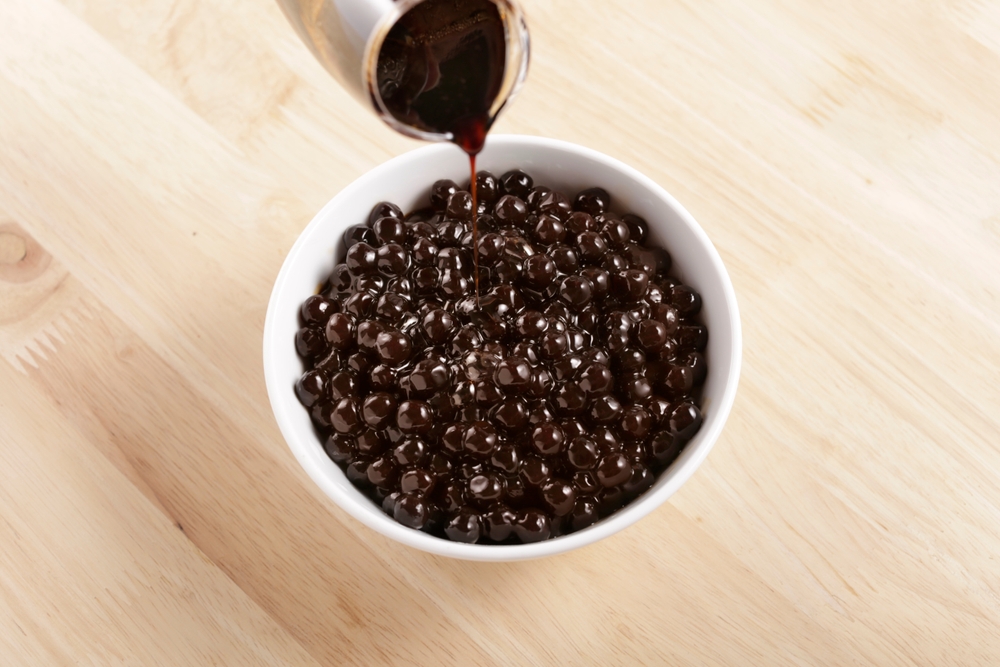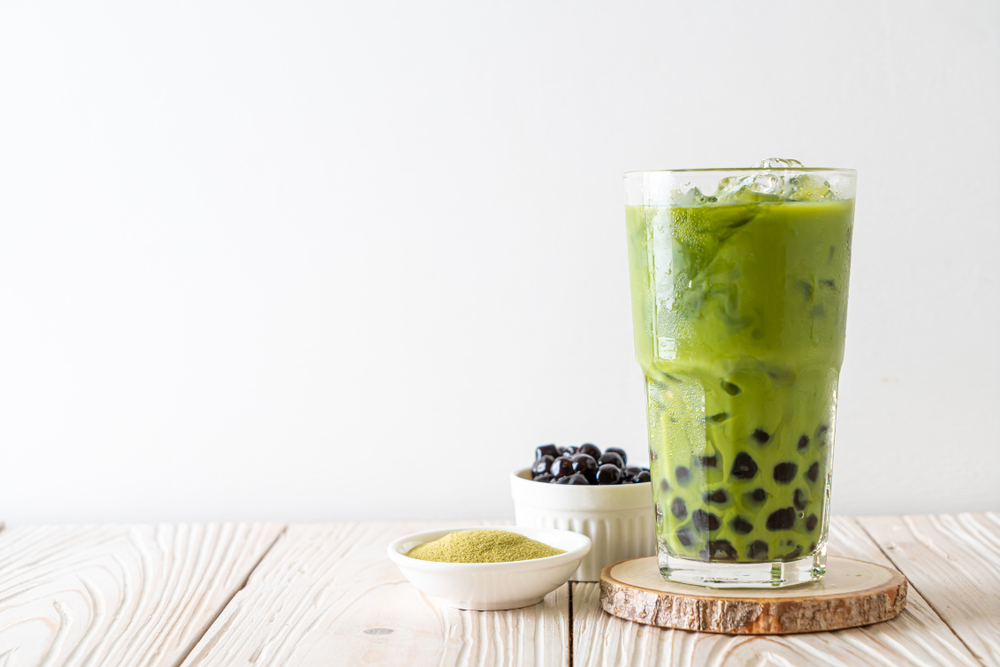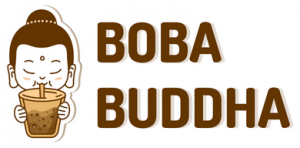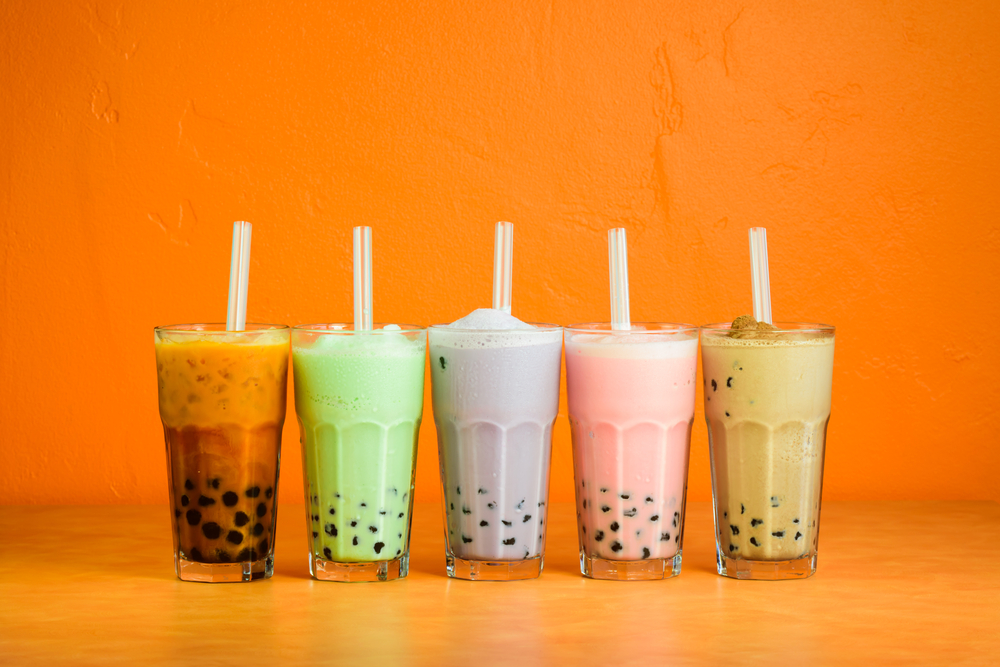Boba is seen as an unhealthy drink because it is often made with added sugars, making it a high-calorie treat. However, boba does offer some nutritional value and by making a few minor changes to your order, you can cut calories and carbs easily.
What Is Bubble Tea Made From?
While ingredients and combinations are endless, traditional bubble tea is made from:
- Tea: the tea base can be any variety, including black tea, green tea, passion fruit, oolong, white tea, or matcha
- Milk or Creamer: usually whole milk, but you can also choose non-dairy milk like coconut milk or almond milk
- Boba: large, chewy tapioca pearls made from tapioca starch
- Sweeteners: usually brown sugar syrup or fruit syrups, sometimes agave and maple syrup
Bubble tea is enjoyed through a wide straw so that you can drink the tapioca pearls along with the tea. The drink is usually served cold, though hot versions are also available.
What Makes Bubble Tea and Tapioca Balls Unhealthy?

Adding sugary toppings (aloe, jelly, popping boba, tapioca pearls, cream crowns) and sweeteners are the most unhealthy parts of a boba drink.
Boba pearls are carbohydrates. They are empty, starchy carbs without much fiber. Tapioca starch has a high glycemic index and can increase blood sugar, making it a poor choice for someone monitoring their blood sugar. Additionally, these pearls are usually soaked in brown sugar syrup.
Other toppings, such as jellies, are almost pure sugar.
Regarding milk, some recipes use condensed milk, which acts as a dairy and sweetener in one; however, it has minimal health benefits. Luckily, you always have the option to change the milk. If you are vegan or lactose-intolerant, you can choose dairy-free milk, such as almond, soy, or coconut milk.
Is There a Lot of Sugar in Milk Tea and Boba Pearls?
A serving of bubble tea can have between 30 and 50 grams of sugar. The American Heart Association recommends a daily sugar intake of 25 grams for adult women and 35 grams for adult men. Though you can request bubble teas with less sweetener, the added sugar content from boba pearls and other toppings is still high.
Dietitians classify boba teas as SSBs (Sugar-Sweetened Beverages) and suggest indulging in them in moderation. Consuming food or drinks high in sugar can lead to more sugar cravings.
Are Boba Teas Fattening?
Despite being high in sugar, boba milk teas have little fat- approximately 1.5 grams. They also have little cholesterol. However, one serving of boba milk tea can have between 400 and 600 calories. Sometimes, the calorie count can be even higher depending on the sugar syrups or additions you choose for your boba tea.
Considering that one pound of body fat equals approximately 3,500 calories, drinking too many bubble teas could make you gain weight. Regularly consuming boba tea has led to concern about obesity rates in Asian youth in recent years.
Does Boba Tea Have Any Nutritional Benefits?
Green tea, a common tea base in boba tea drinks, has been shown to lower heart disease risk and total cholesterol. Black teas and green teas are high in polyphenols, a type of antioxidant. Drinking a cup of tea, the base of all bubble teas, can also aid in weight loss.
Classic boba teas use whole milk, which provides calcium, protein, and vitamins.
The cassava plant, from which tapioca starch is made, is naturally cholesterol free, fat-free, gluten-free, and has a small amount of fiber. It also contains calcium, potassium, and iron.
Note: The added sugars and calories may outweigh the health benefits of green tea in boba tea drinks.
Two Healthiest Boba Tea Options

- Matcha Bubble Tea: Matcha milk tea still contains about 280 calories; however, matcha is a green tea powerhouse. It significantly boosts antioxidants, vitamins, minerals, and natural energy.
- Lychee Fruit Tea: Lychee has been known to improve cardiovascular health. Because this fruit tea is made without milk, it is lower in calories. In general, a lychee fruit tea has 220 calories.
If you want to stick with your favorite bubble tea flavor, you can make it healthier by asking for a half serving of topping, opting for chia seeds instead of tapioca pearls, changing the milk, and asking for 25% sweetness.

